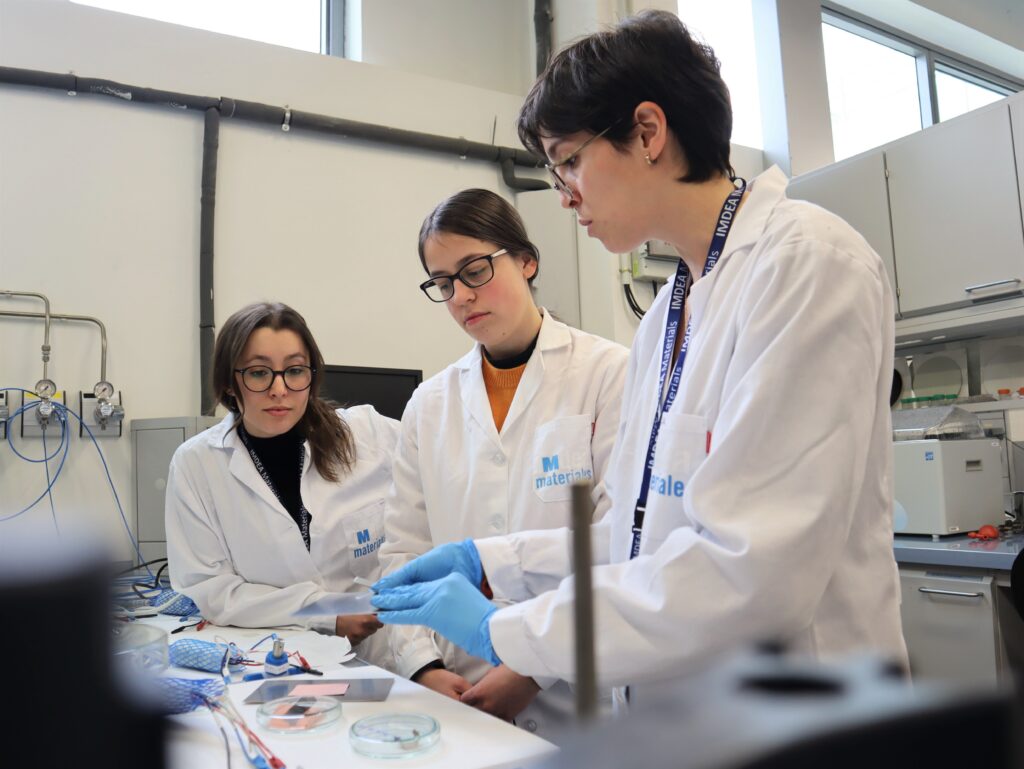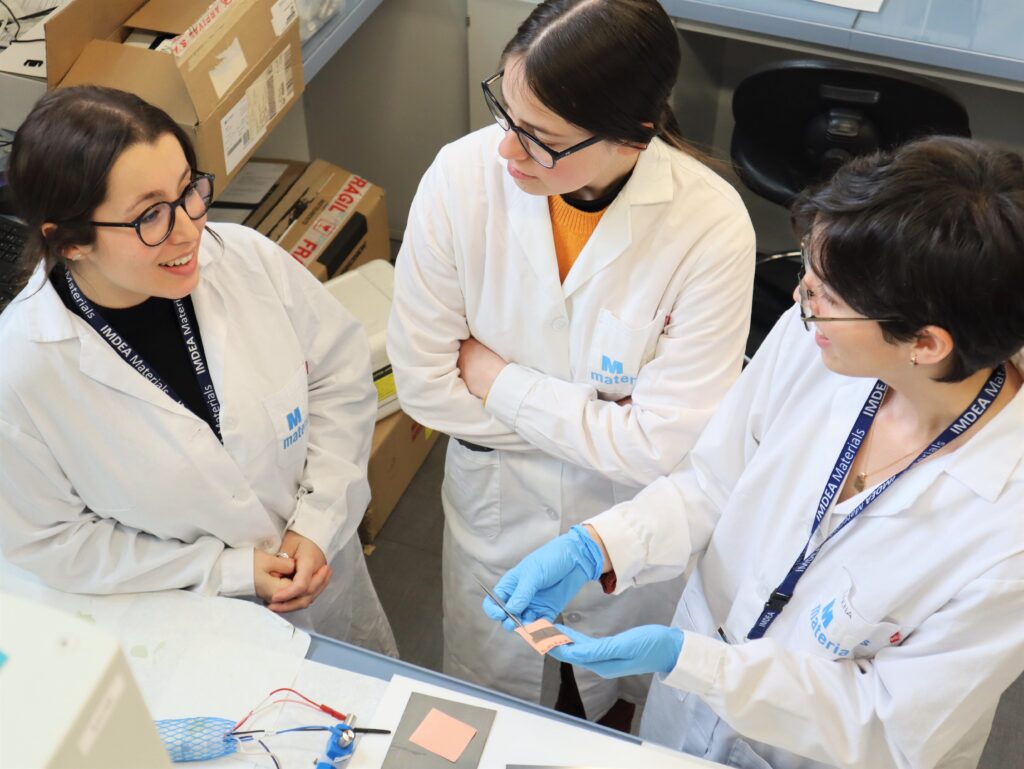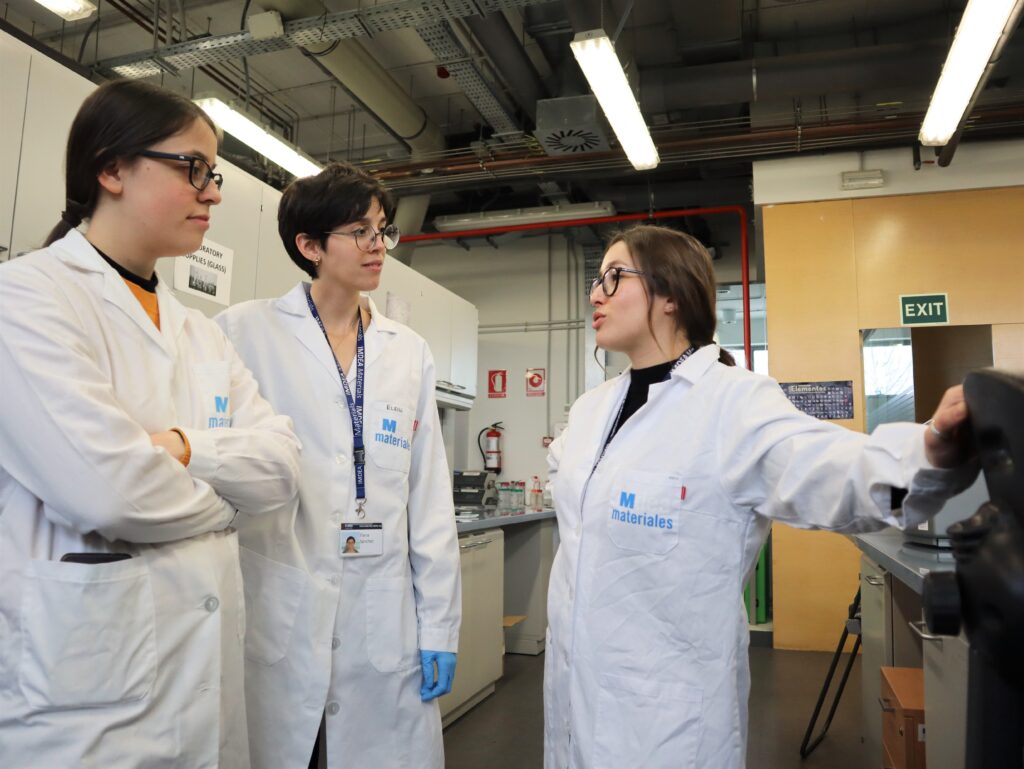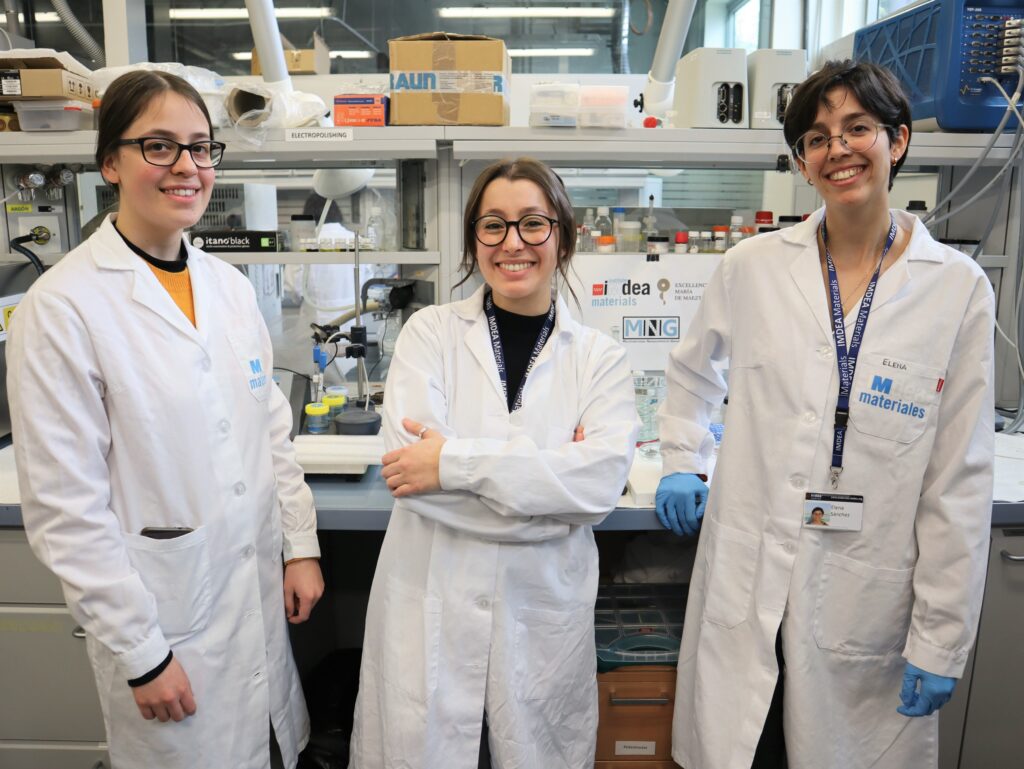Blanca Limones represents the ongoing generational change underway in the world of science and research.
The 27-year-old is currently working as a Research Assistant at IMDEA Materials Institute, where she forms part of the Biomaterials and Regenerative Medicine research group, led by Dr. Jennifer Patterson.
She came to IMDEA Materials as part of Programa Investigo, funded by the European Union – Next Generation EU, after spending two years at the Institute of Micro and Nanotechnology of the Spanish National Research Council (CSIC).
There, she worked on Scanning Electron Microscopy (SEM), nanofabrication of neural stimulating electrodes and cell culture among other lines of research dedicated to regenerative medicine.
And with the recent focus on gender representation in research for the International Day of Women and Girls in Science, celebrated this Saturday, Limones is a clear example of progress in this regard.
“When I was at CSIC, my research group was led by two women and in the lab, we were four women and one man,” explained Limones. “And here at IMDEA, also, the leader of the group I’m part of is a woman, and within the group we are almost three times more women than men.”
“So, I think that, in this sense, I and my generation in general have been luckier that previous ones. In my case in particular, no one has ever put any impediments in my path to study science because I am a woman.”

That things are changing from generation to generation, albeit slowly, can also be seen in IMDEA Materials’ own figures. Currently, women occupy 13% of Senior Researcher, and 19% of the Postdoctoral Researcher positions at the Institute.
However, that percentage almost doubles among Predoctoral Researchers, the majority of whom are those most-recently graduated from university, where women account for 36%.
“It is true that senior positions are still more associated with men,” said Limones. “But I think we are well on the way to changing that, because it’s something people are more aware of every day, and it’s something that has to change. And it is changing.”
In her role as a Research Assistant, Limones wears several hats. On the one hand, she provides technical support to other researchers working in the biomaterials field, drawing on her expertise in microscopy and preparing experiments. She is also responsible for the administration of the biomaterials laboratory, and in helping manage relevant infrastructure.
On the other hand, she carries out research related to the design and manufacture of biodegradable, shape-changing and load-bearing implants.
“I mainly provide technical support to researchers in the biomaterials group with all kinds of cell viability tests, and SEM-related tasks,” Limones said.
” I am also working on evaluating the compatibility of a number of materials to create some bioabsorbable and shape-changing implants. That requires a lot of research on toxicity using different cell lines and also primary cells.”




